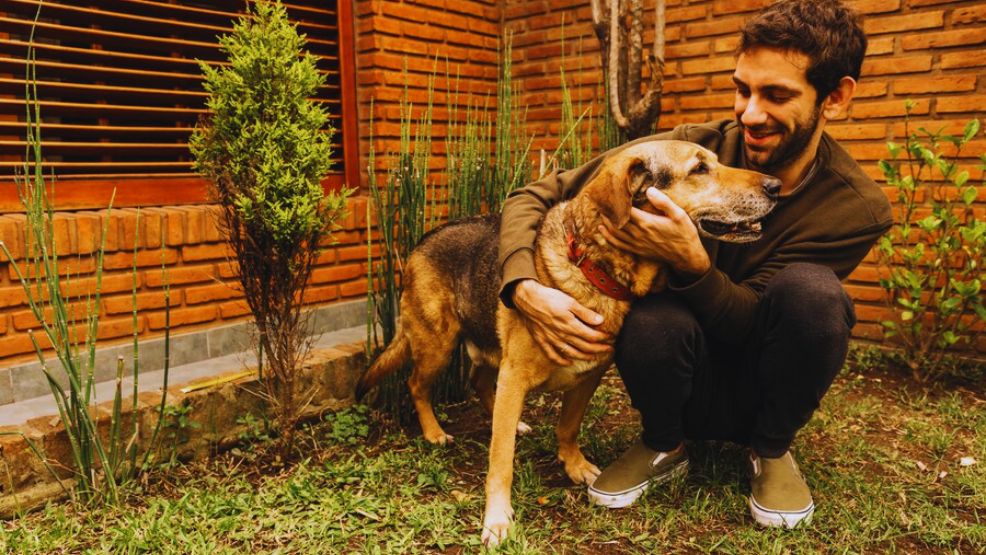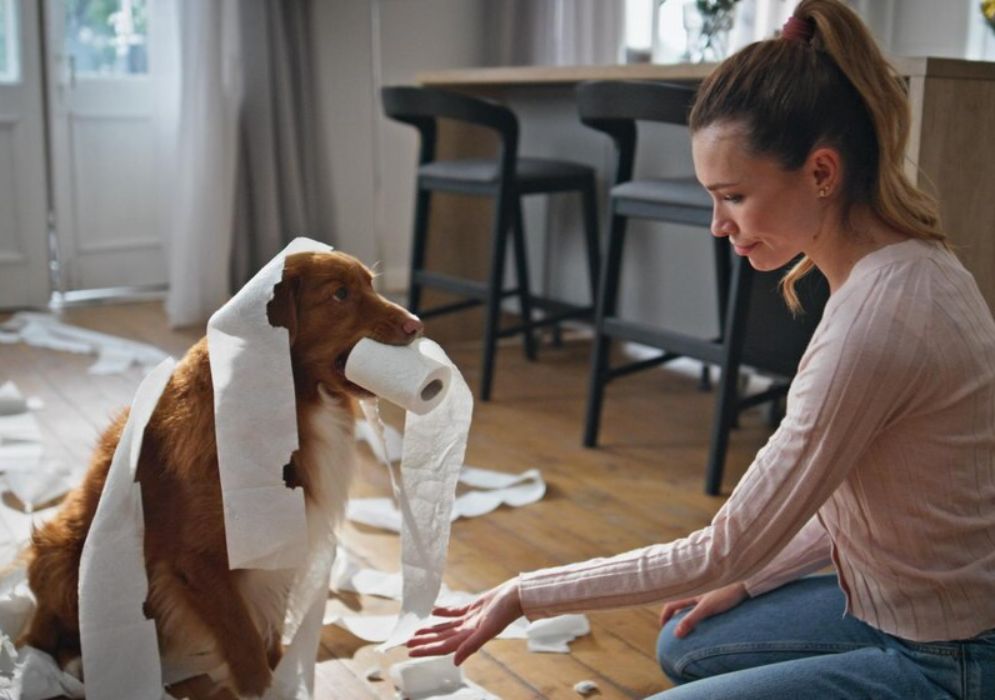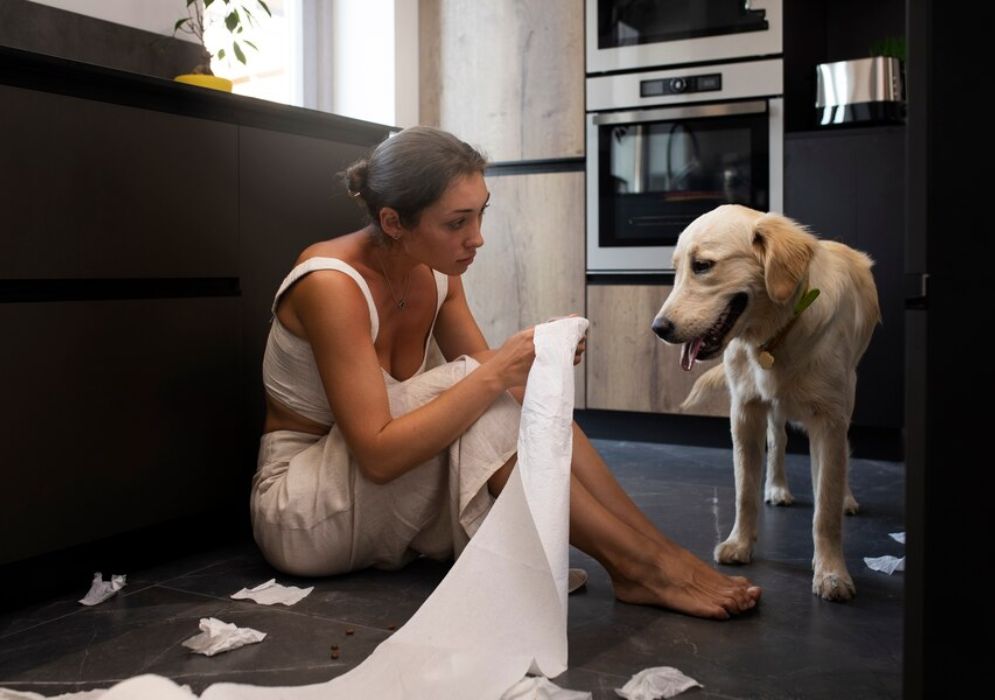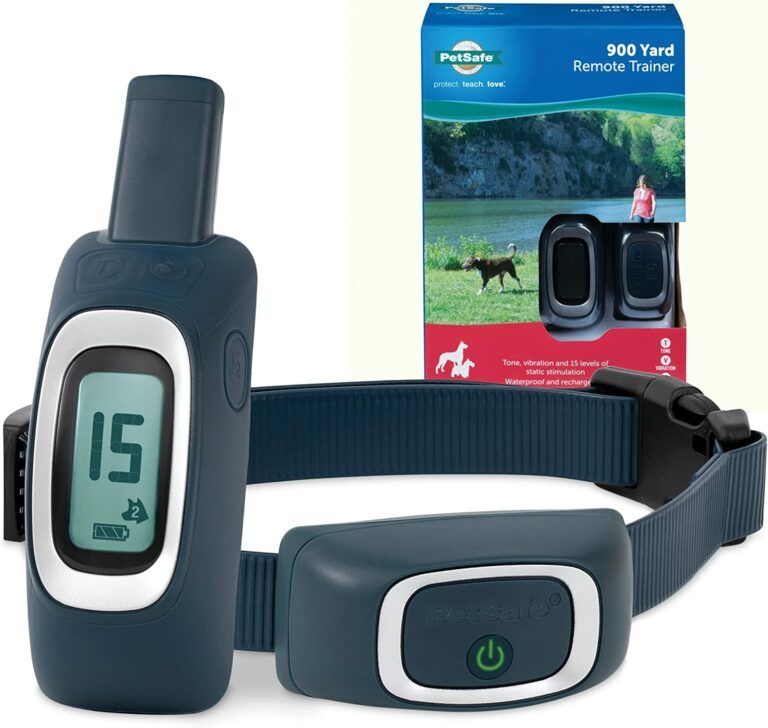Can a Dog Be Held Liable for Property Damage?


If you have been googling about dog liability for property damage, you are not alone!
When considering property damage caused by a dog, the responsibility lies not directly with the animal but rather with its owner or caretaker.
People legally consider pets, including dogs, as property in most jurisdictions. Therefore, any damages they cause typically become the owner’s legal responsibility.
Understanding the nuances of property damage caused by dogs can help owners, victims, and legal professionals navigate such cases effectively.
Understanding Dog Liability

Owning a dog comes with many joys but also responsibilities, including understanding dog liability.
This simply means that as a pet owner, people can hold you legally responsible if your dog causes damage to someone else’s property. Knowing the rules around dog liability can help you avoid potential legal troubles and unexpected expenses.
In most cases, dog liability laws depend on where you live. Some states follow strict liability laws. This means you’re responsible for the damage that your dog causes, even if it has never shown aggressive behavior before.
For example, if your dog digs up a neighbor’s flower bed or chews on their outdoor furniture, you might have to cover the repair or replacement costs. Other states use the “one-bite rule,” where one can hold the owner liable if the dog has a history of harmful behavior.
It’s also important to consider local leash laws or property-specific rules, like those in rental agreements. You could face consequences if your dog roams freely and damages someone’s fence, yard, or other property.
To protect yourself and others, consider taking these steps:
- Supervise your dog: Always watch your pet, especially in unfamiliar settings.
- Invest in training: A well-trained dog is less likely to damage property or get into trouble.
- Check your insurance: Many homeowner or renter insurance policies cover dog-related damages. If not, look into pet liability insurance.
Understanding dog liability is not just about following the law—it’s about being a responsible pet owner.
When you’re proactive, you protect your dog, community, and yourself from unnecessary stress and costs.
Therefore, you can enjoy your furry friend’s companionship worry-free while ensuring peace of mind for everyone involved by staying informed and taking precautions.
The Role of the Dog’s Owner
As a dog owner, you play a key role in preventing property damage caused by your pet.
You’re legally and morally responsible for ensuring your dog behaves appropriately and doesn’t harm others’ belongings.
This means supervising your dog, especially in shared or unfamiliar spaces, and addressing behavioral issues through proper training.
It’s also essential to understand local laws, such as leash requirements, and ensure your dog is secured on your property.
Investing in liability insurance can offer added protection. By being proactive, you avoid legal trouble and maintain positive relationships within your community.
Strict Liability vs. Negligence
Different states and localities approach liability for a dog’s actions in varied ways:
- Strict Liability Laws: In jurisdictions with strict liability laws, dog owners are held responsible for damages caused by their pets, regardless of the owner’s intent or negligence. For example, if a dog digs up a neighbor’s garden or damages landscaping, the owner will have to pay for repairs or replacements, even if they took reasonable precautions.
- Negligence-Based Laws: In areas where negligence must be proven, liability depends on whether the owner failed to take reasonable care to prevent the damage. For example, if an owner left a gate open, allowing the dog to roam freely and cause destruction, the owner could be liable due to their lack of diligence.
Common Types of Property Damage Caused by Dogs
- Physical Damage to Property: Dogs can chew furniture, dig holes in lawns, damage fences, or destroy plants. For example, a neighbor’s dog that enters your yard and destroys landscaping or outdoor decorations may leave the owner liable for repair or replacement costs.
- Destruction of Personal Items: Dogs often damage personal items like shoes, clothing, or even vehicles. An off-leash dog that scratches a car’s paint or destroys a package delivered to a doorstep could make its owner responsible for compensating the affected party.
- Injury to Other Animals: If a dog harms another person’s pet or livestock, in legal terms, it is property damage. For instance, if a dog attacks chickens or other livestock on a farm, the owner may be required to pay for the financial loss, including replacement costs or veterinary expenses.
Factors That Influence Dog Liability for Property Damage
Several factors determine whether a dog owner is liable for property damage caused by their pet. The first is state or local laws.
Some areas follow strict liability laws, holding you accountable regardless of your dog’s history, while others use the “one-bite rule,” focusing on prior incidents.
The dog’s behavior is another key factor. You will likely be held responsible if your dog has a history of destructive actions or aggression.
Additionally, supervision and containment matter—letting your dog roam freely can increase liability.
Understanding these factors helps you proactively protect yourself and prevent issues. Here are some of them in detail:
Leash and Containment Laws
Local leash laws often dictate how and where a dog must be controlled. If an owner fails to comply and their dog causes damage, this failure can be a key factor in determining liability.
For example, if you leave a dog unrestrained in a public area and damage a business’s outdoor display, the owner’s violation of leash laws could be cited in a legal claim.
Previous Behavior
A dog’s history of destructive behavior can influence liability. We can expect the owners to take extra precautions with dogs that have previously caused damage. Repeated incidents may indicate negligence on the owner’s part.
Provocation or Trespassing
If someone had provoked the dog or the damaged property was on land where the dog had a right to be, the liability might shift. Similarly, if a dog damages a trespasser’s property, the owner may not be held accountable.
Legal Recourse for Property Damage by Dogs

If your dog damages someone’s property, legal action might follow if the issue isn’t resolved amicably. The property owner can file a civil lawsuit to recover repair or replacement costs.
Depending on your state’s laws, strict liability may apply, making you responsible even if it’s your dog’s first offense.
To avoid legal trouble, try resolving the matter informally by offering compensation. If it escalates, consult a lawyer to understand your rights and responsibilities.
Insurance, such as a homeowner’s or renter’s policy, might cover damages, easing the financial burden. Acting quickly and responsibly can prevent a simple mistake from becoming a legal headache.
Filing a Claim
If a dog has damaged your property, the first step is to document the incident. The San Bernardino injury attorneys recommend taking photos, gathering witness statements, and estimating the repair or replacement costs.
Approach the dog’s owner to resolve the issue amicably. Often, homeowner’s insurance or renter’s insurance will cover such claims.
Pursuing Legal Action
If the owner refuses to take responsibility, you may need to file a small claims court case. Presenting evidence of the damage and any associated costs is critical for success.
Steps for Dog Owners to Prevent Property Damage

Now that you know your responsibilities as a dog owner, it is time to understand what you can do to prevent issues like dog liability for property damage.
Here are some of the steps that you need to take:
Supervise and Train Your Dog
Training your dog to follow commands and discouraging destructive behaviors can significantly reduce the risk of damage.
Secure Your Property
Fences, gates, and other containment methods help ensure your dog doesn’t wander off and damage someone else’s property.
Leash Your Dog in Public Spaces
Complying with local leash laws ensures you maintain control of your dog at all times, minimizing the risk of accidental damage.
Assess Insurance Coverage
Check your homeowner’s or renter’s insurance policy to ensure it covers property damage caused by pets.
Play Along With Your Furry Friend!
While dogs cannot be “held liable” for property damage legally, their owners are typically responsible for the actions of their pets.
Whether under strict liability laws or negligence-based standards, owners must take reasonable precautions to prevent their dogs from causing harm.
By understanding local laws, taking preventive measures, and being prepared to address incidents appropriately, dog and property owners can handle these situations effectively.









Leave A Comment